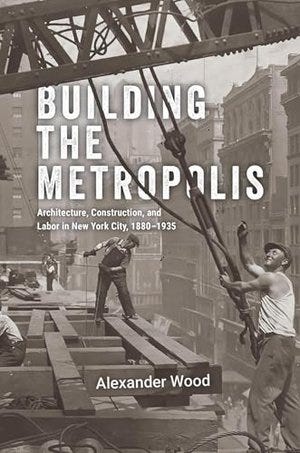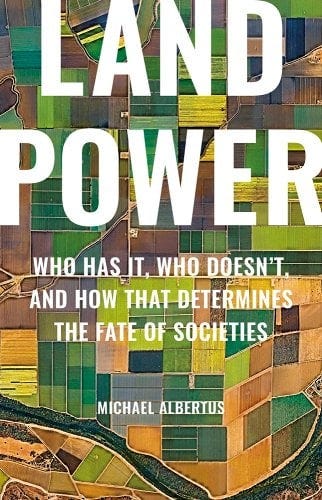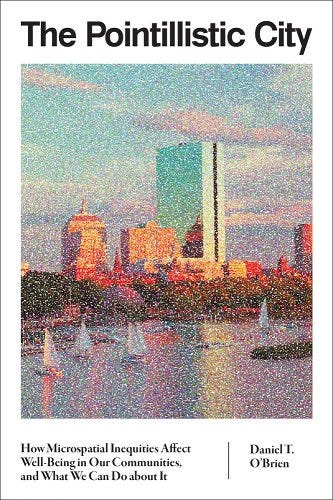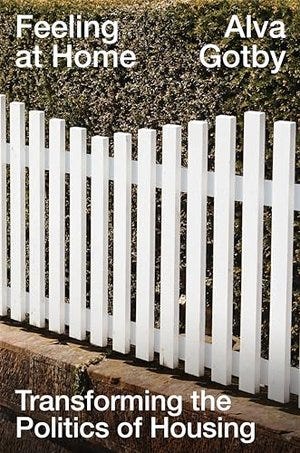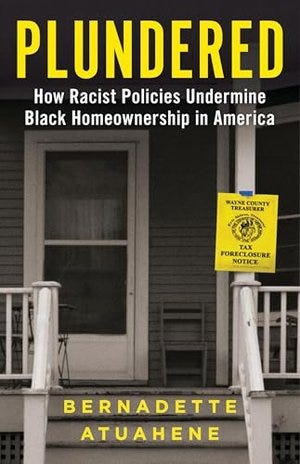12 books about housing, cities, and more to read this spring
New books by Ezra Klein, Derek Thompson, Russell Shorto, and more
Welcome back to The New Urban Order — where urbanists explore the future of cities. At the top of 2025, I wanted to reintroduce myself and the work that I do here.
👋🏻 I’m Diana Lind. I’ve been writing about cities for more than 20 years, including in the book Brave New Home.
💻 I post articles to this newsletter twice a week and have more than 100 posts in the archive. About 90 percent of what I publish has a paywall and I save the best insights and commentary for my paid subscribers. If you’re enjoying my newsletter, don’t delay in subscribing.
✈️ I host subscriber-only events in cities around the country and on Zoom. This year, I’m planning to meet up with subscribers in San Francisco and Philadelphia, with more dates and locations to be announced soon.
❤️ Engagement makes this work possible and fun. If you like a story, don’t forget to hit the like button, share the article and tag me on Substack or LinkedIn, or show some appreciation by subscribing.
There are SO MANY new books coming our way this spring. A lot of them are focused on housing. Several have been compared to Evicted, for better or worse. A few draw lessons from individual cities such as Boston, Chicago, Detroit, New York, and Tulsa. Some are hotly anticipated, such as Ezra Klein and Derek Thompson’s joint effort, Abundance. If this first dozen of 2025 is any indication, it’s going to be crowded on my nightstand this year.
All these books and more are featured in The New Urban Order bookshop!
Building the Metropolis: Architecture, Construction, and Labor in New York City, 1880-1935
by Alexander Wood (Jan 10, 2025)
Between the 1880s and the 1930s, New York City experienced explosive growth as nearly a million buildings, dozens of bridges and tunnels, hundreds of miles of subway lines, and thousands of miles of streets were erected to meet the needs of an ever-swelling population. Building the Metropolis offers a revelatory look at this era of urban development by asking, “Who built New York, and how?” Focusing on the work of architects, builders, and construction workers, Alexander Wood chronicles the physical process of the city’s rapid expansion.
Land Power: Who Has It, Who Doesn’t, and How That Determines the Fate of Societies
by Michael Albertus (January 14, 2025)
For millennia, land has been a symbol of wealth and privilege. But the true power of land ownership is even greater than we might think. In Land Power, political scientist Michael Albertus shows that who owns the land determines whether a society will be equal or unequal, whether it will develop or decline, and whether it will safeguard or sacrifice its environment. Drawing on a career's worth of original research and on-the-ground fieldwork, Albertus shows that choices about who owns the land have locked in poverty, sexism, racism, and climate crisis--and that what we do with the land today can change our collective fate.
The Pointillistic City How Microspatial Inequities Affect Well-Being in Our Communities, and What We Can Do about It
by Daniel T. O'Brien (January 21, 2025)
The Pointillistic City explores the multilayer geography of our daily lives—specifically, how we simultaneously live at the scales of addresses, streets, and neighborhoods and how each can be relevant for our well-being. Not unlike the way in which we look at a pointillistic painting, which depicts a full scene through the detailed organization of multiple objects, Daniel T. O'Brien considers the three scales together and the comprehensive understanding of the city they offer. This book illustrates the pointillistic perspective on cities with two in-depth case studies—one on crime, the other on environmental justice—in Boston.
Feeling at Home: Transforming the Politics of Housing
by Alva Gotby (January 21, 2025)
Feeling at Home grapples with the practical and emotional questions of housing – domestic labor, privacy, security, ownership, and health. Is it possible to imagine success without home ownership? Alva Gotby makes clear that solving the housing crisis is about much more than housing stock.
Plundered: How Racist Policies Undermine Black Homeownership in America
by Bernadette Atuahene (January 28, 2025)
When Professor Bernadette Atuahene moved to Detroit, she planned to study the city's squatting phenomenon. What she accidentally found was too urgent to ignore. Her neighbors, many of whom had owned their homes for decades, were losing them to property tax foreclosure, leaving once bustling Black neighborhoods blighted with vacant homes. Through years of dogged investigation and research, Atuahene uncovered a system of predatory governance, where public officials raise public dollars through laws and processes that produce or sustain racial inequity.





